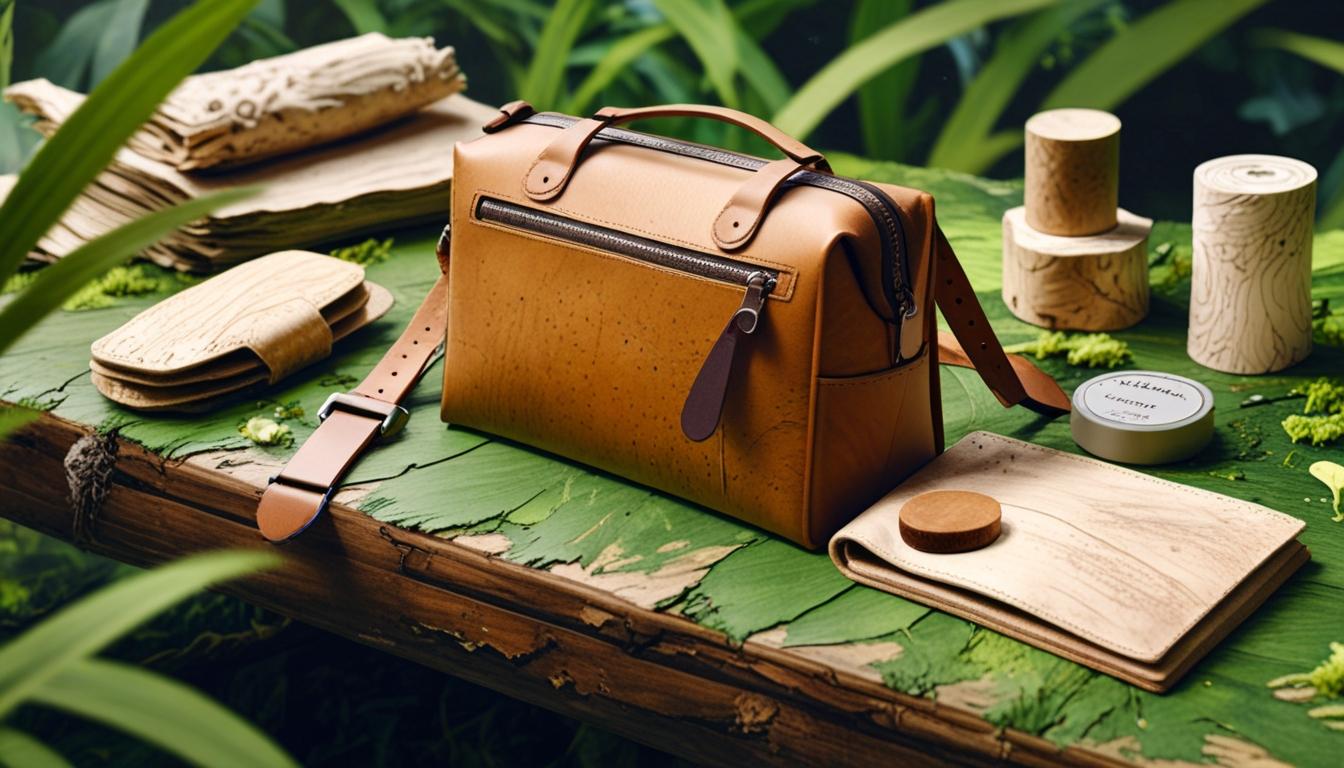London: The fashion industry’s leather segment is transforming with eco-friendly alternatives amid growing environmental concerns. Leading companies develop innovative materials from agricultural waste, while luxury brands embrace plant-based solutions, encouraging broader market acceptance and celebrity support as the vegan leather market is projected to experience significant growth by 2030.
The fashion industry’s leather segment is undergoing significant transformation as it faces increased scrutiny over its environmental impact. Traditional leather production is associated with extensive farming practices, the use of harmful chemicals in tanning, and various forms of environmental damage. In light of these concerns, a surge of innovation is occurring, primarily through the emergence of eco-friendly leather alternatives produced by biomaterials manufacturers.
Leading the initiative are companies such as Malai Eco, Banofi, BioLeather, Fleather by Team PHOOL, Zaibunco Industries Pvt. Ltd., Responsive Industries Ltd., Giriraj Coated Fab Pvt. Ltd., and Response Fabrics India Pvt. Ltd. These manufacturers are at the forefront of developing sustainable materials that brands are increasingly incorporating into their product lines. Notably, fashion brands like Planet Paadukas, The Gusto, Zouk, Tiger Marron, Mokobara, Aulive, Sarjaa, and Arture are now opting for these materials to provide vegan and ethically conscious fashion choices.
Established fashion brands are also adopting innovative approaches. Allen Solly is one example, introducing a product line that includes materials derived from apple peels and cactus leaves. Global leaders in luxury apparel, including Stella McCartney, Gucci, Hermes, and Adidas, are experimenting with leather alternatives. For instance, Hugo Boss has launched a range of shoes made from plant-based pineapple leather, while H&M’s Conscious Exclusive collection features vine leather.
Collaborations are also on the rise within the industry. Notably, Hermes has partnered with MycoWorks to utilise Fine Mycelium, a mushroom-based leather, for its Victorian bags, while Lululemon has incorporated alternative leathers into its sustainable range of bags and yoga mats. Adidas is replicating this strategy by using mycelium in its footwear collections.
As the vegan leather market expands, celebrities around the globe are vocalising their support for sustainable fashion. Notable figures such as Miley Cyrus, Emma Watson, and Joaquin Phoenix advocate for vegan options, while Indian celebrities like Sunny Leone, Dia Mirza, and Sonakshi Sinha are also promoting eco-conscious choices.
According to Vantage Market Research, the market for vegan leather was valued at USD 60.4 million in 2023, with projections to reach USD 131.7 million by 2030. Research from McKinsey & Company indicates that products with environmental claims experience an average of 1.7 percentage points greater sales growth compared to those without. The demand is particularly strong among Millennials and Generation Z, who are often willing to pay a premium for eco-friendly products.
Zuzana Gombosova, Co-founder of Malai Eco, which produces a biocomposite material made from organic and sustainable bacterial cellulose, commented, “The market for vegan leather is predicted to grow every year due to higher demand for more environmentally friendly material in many industries.” Malai is produced from agricultural waste from the coconut industry in Southern India, showcasing a process that repurposes waste to benefit the environment.
Another innovative company, Banofi, utilises banana crop waste—India being the largest producer of bananas generates significant waste. Jinali Mody, Founder and CEO of Banofi, reported, “Our process begins by sourcing banana crop waste directly from farmers, who would otherwise discard it.” The resulting material, known as Ban-o-Fi, is said to have a significantly lower environmental impact than traditional leather.
Aside from private enterprises, government bodies are also contributing. The CSIR-National Institute for Interdisciplinary Science and Technology (NIIST) in Thiruvananthapuram has developed vegan leather from agro-waste, preparing to commercialise this technology. Similarly, the Central Leather Research Institute (CLRI) has created leather-like materials from mango pulp.
Many brands are recognising the rising demand for vegan options. Wamika Shekhawat, Co-founder of Aulive, remarked, “We noticed a significant shift toward plant leather acceptance post-pandemic,” while Anjana Arjun, Co-founder and CEO of Sarjaa, highlighted the expansion potential for plant-based alternatives within the luxury segment.
However, some brands caution against potential greenwashing in the market, where materials like PVC and PU are marketed as vegan leather despite their reliance on petroleum products. Zuzana Gombosova noted that while PU leather may be more eco-friendly than traditional leather, it still presents challenges in competition due to cost.
Challenges such as material durability and market pricing also pose hurdles for brands. Jungle Marrón, run by Saahil Nandrajog, indicated that while plant-based materials are more ethical, they may not yet offer the durability of traditional leather. Amit Jain, Founder and Director of Planet Paadukas, pointed out the difficulties emerging brands face due to supplier minimum order requirements and the ongoing development of the vegan leather sector.
With the fashion industry evolving and adapting to consumer preferences, the exploration of sustainable alternatives continues to gain momentum, setting the stage for a potential turning point in how fashion is produced and consumed.
Source: Noah Wire Services



